






1. こんにちは。 (Konnichiwa. Hello.) 2. こんばんは。 (Konbanwa. Good evening.) 3. さようなら。 (Sayonara. Goodbye.) 4. お願いします。 (Onegaishimasu. Please.) 5. どういたしまして。 (Douitashimashite. Thank you.) 6. いただきます。 (Itadakimasu. I give thanks for the meal.) 7. ごちそうさまで。 (Gochisousama deshita. Thank you for the meal.) 8. おはようございます。 (Ohayou gozaimasu. Good morning.) 9. こんばんは、お元気ですか。 (Konbanwa, ogenki desu ka. Good evening, how are you?) 10. これは何ですか。 (Kore wa nan desu ka. What is this?) 11. お願いします、お願いします。 (Onegaishimasu, onegaishimasu. Please, please.) 12. じゃあね。 (Jaa ne. Bye-bye.) 13. いいえ、お願いします。 (Iie, onegaishimasu. No, please.) 14. はい、どういたしまして。 (Hai, douitashimashite. Yes, thank you.) 15. すみません、お手々をfoutします。 (Sumimasen, o te o foutoshimasu. Excuse me, I'll be right back.) 16. お待たせしました。 (O machigatte shimashita. I'm sorry to keep you waiting.) 17. お先に失礼します。 (O sae ni shitsurei shimasu. I'm sorry to be the first to leave.) 18. 何か手伝いできますか。 (Nanika tetsudai dekimasu ka. Can I help you with anything?) 19. どういたしまして、ありがとうございます。 (Douitashimashite, arigatou gozaimasu. Thank you very much, you're welcome.) 20. ごめんなさい、私、エリーです。 (Gomen nasai, watashi, Eriru desu. Sorry, my name is Eriru.)
1. "こんにちは。" (Konnichiwa. Hello.) - This is an informal greeting that is commonly used during the day. It is used to greet someone you know or to initiate a conversation. For example, you might say "こんにちは、お元気ですか。" (Konnichiwa, ogenki desu ka. Hello, how are you?) when you see someone you know and want to ask how they are doing. 2. "こんばんは。" (Konbanwa. Good evening.) - This is a formal greeting that is used in the evening. It is used to greet someone you know or to acknowledge their presence. For example, you might say "こんばんは、お元気ですか。" (Konbanwa, ogenki desu ka. Good evening, how are you?) when you see someone you know and want to ask how they are doing. 3. "さようなら。" (Sayonara. Goodbye.) - This is an informal farewell that is commonly used when you are leaving someone's presence. It is used to say goodbye to someone you know or to acknowledge their departure. For example, you might say "さようなら、またね。" (Sayonara, mata ne. Goodbye, see you later.) 4. "お願いします。" (Onegaishimasu. Please.) - This is an informal request that is used to ask someone to do something for you. It is often used as a polite way to make a request or to ask for help. For example, you might say "お願いお願いします、このファイルをオープンしてください。" (Onegaishimasu, onegaishimasu, kono file wo open shiite kudasai. Please, please open this file.) 5. "どういたしまして。" (Douitashimashite. Thank you.) - This is an informal expression of gratitude that is used to thank someone for something they have done for you. It is often used as a polite way to acknowledge someone's help or kindness. For example, you might say "お手伝いをありがとうございました。" (O tetsudai wo arigatou gozaimasu. Thank you for your help.) 6. "いただきます。" (Itadakimasu. I give thanks for the meal.) - This is an expression of gratitude that is commonly used at the beginning of a meal. It is used to show respect for the food and to acknowledge the efforts of the person who prepared the meal. For example, you might say "いただきます、ごちそうさまで。" (Itadakimasu, gochisousama deshita. I give thanks for the meal, thank you for the meal.) 7. "ごちそうさまで。" (Gochisousama deshita. Thank you for the meal.) - This is an expression of gratitude that is commonly used at the end of a meal. It is used to show appreciation for the food and to thank the person who prepared the meal. For example, you might say "ごちそうさまで、おいしかったですね。" (Gochisousama deshita, oishikatta desu ne. Thank you for the meal, it was delicious.) 8. "おはようございます。" (Ohayou gozaimasu. Good morning.) - This is an informal greeting that is commonly used in the morning. It is used to greet someone you know or to acknowledge their presence. For example, you might say "おはようございます、お元気ですか。" (Ohayou gozaimasu, o
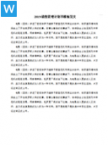
关于《唐诗宋词大全集》,这里列出一些可能包含的内容和特点: 1. **收录内容**:《唐诗宋词大全集》通常会收录唐朝和宋朝时期的大量诗歌。唐诗部分可能包括从初唐四杰、盛唐诗坛的李白、杜甫、王维等人的作品,到中晚唐的元稹、白居易、李商隐等诗人...
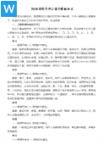
1. **感恩的苹果**:一位老农不慎将一个大苹果掉在了地里,没想到不久后苹果长出了许多小苹果树,老农用这个苹果重新种下了希望。 2. **羊的感恩**:牧羊人救了一只即将被猎人射杀的小羊,多年后,这只羊得知牧羊人的困难,帮助他渡过了难关。...
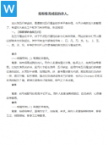
关于听课的评语和建议是一个综合性的领域,旨在促进教学方法的改进和学习环境的优化。以下是一些常见的听课评语和建议,它们可以从不同的角度提供反馈: 1. **教学内容的准确性与深度**: - 评语:教师在讲解知识点时,展现出了深厚的专业知...
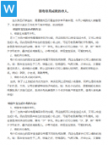
个性签名是一种在社交媒体、聊天应用或其他网络平台上用于自我表达的方式。它们通常是简短的句子或短语,用于反映个人的风格、态度或情感状态。由于网络的不断变化和个性化需求的多样化,以下是一些可能适用于2022年个性签名的示例: 1. **励志型*...
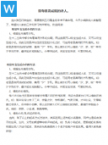
在新年到来之际,人们通常会用各种祝福语来表达对亲朋好友的美好祝愿。以下是一些常见且寓意美好的新年祝福语及来年祝福,您可以根据场合和个人喜好选择使用: 1. **平安喜乐**:祝你新的一年里平安健康,喜乐满溢,事事顺心。 2. **万事如意*...
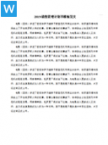
关于"各抒己见"这一短语,指的是每个人都有权利并且应当表达自己的观点、想法或者看法,而不受他人干扰。它鼓励了思想的自由交流和多元化。以下是关于"各抒己见"的一些造句示例: 1. 在学术讨论会上,每个参与者都应各抒己见,以促进知识的深入探讨。...
Copyright @ 好写作网 All Rights Reserved. 版权所有 粤ICP备2023147452号-1